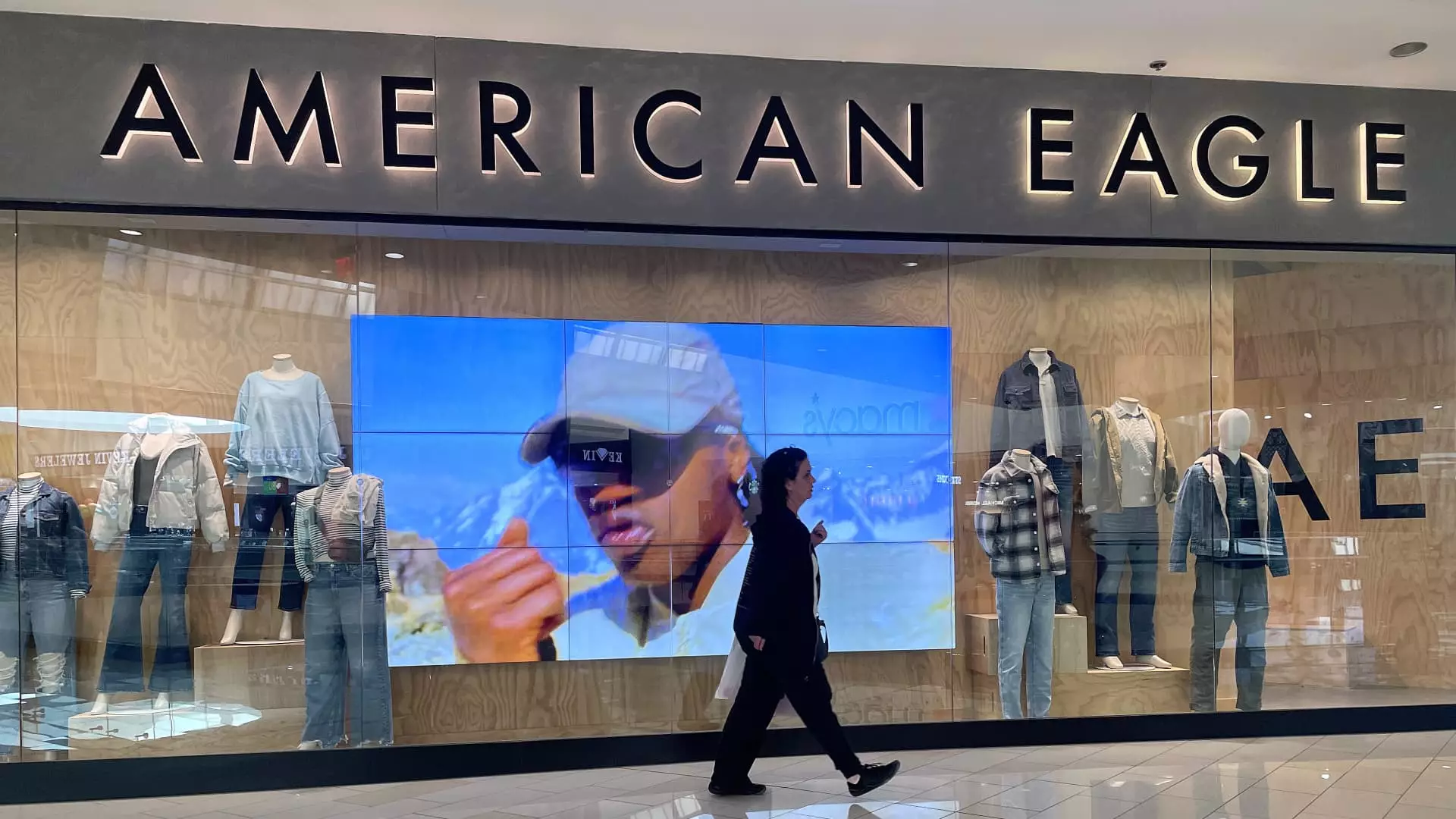American Eagle Outfitters (AEO) has recently initiated a significant legal challenge against the e-commerce behemoth, Amazon. The lawsuit, filed in the Southern District of New York, shines a light on the troubling issue of trademark infringement in the digital marketplace and raises questions about the broader implications for brand integrity and consumer trust in online retail.
At the heart of the lawsuit are claims that Amazon has engaged in “flagrant” and “unauthorized” use of AEO’s trademarks, specifically those associated with its Aerie clothing line. AEO alleges that Amazon uses its trademarks in such a way that it misleads consumers into believing they are purchasing authentic Aerie products when, in reality, they are being directed to inferior copies or “knock-offs.” According to AEO, a simple online search for Aerie items yields not only direct links to products but also to advertisements that link back to Amazon’s marketplace, where these cheaper alternatives are sold.
The company’s legal complaint emphasizes that American Eagle has not authorized Amazon to carry its Aerie line. Founded in 1977 and launching Aerie in 2006, AEO has crafted a distinct brand identity for its line of loungewear, leggings, and lingerie. A part of this strategy involves deliberately keeping Aerie products off Amazon to nurture a unique customer experience and brand loyalty. This assertion suggests a significant disruption to their brand integrity—an important asset for any retail brand, especially in the highly competitive fashion market.
The crux of AEO’s argument is that Amazon’s marketing techniques are misleading to consumers. The lawsuit details how, upon searching for Aerie products, shoppers are presented with Amazon’s listings that feature misspellings of the brand’s name, making it seem like they are still part of Aerie’s offerings. This manipulation of search results not only confuses potential buyers but can also damage Aerie’s brand reputation by associating it with subpar merchandise. As delineated in the complaint, labeling products with altered brand names like “Aeries” or “Aries” serves to intentionally mislead customers who might believe they are purchasing authentic Aerie articles from a trusted retailer.
In essence, AEO argues that these misleading advertisements not only harm their brand but also undermine the consumer’s ability to make informed purchasing decisions. It’s a classic case of brand dilution and the associated consumer confusion that can arise in the densely populated online retail space.
This legal tussle is not an isolated instance; rather, it underscores a broader concern that has plagued Amazon. The company has faced numerous accusations over the years regarding the sale of counterfeit goods on its platform, with other brands like Birkenstock and Daimler AG also expressing their grievances. With more than half of the products sold on Amazon coming from third-party sellers, the challenges of monitoring and regulating potential trademark infringements increase exponentially.
Despite Amazon’s assurances that it prohibits counterfeiting and its efforts to combat such practices—including establishing a dedicated team to monitor intellectual property infringements and criminal actions against counterfeiters—many brands remain skeptical. The reality is that for every measure Amazon introduces, the vastness of its marketplace makes it an uphill battle fraught with loopholes and limited oversight.
The outcome of this lawsuit could set a precedent for how online marketplaces handle trademark protections, and it brings to light critical issues regarding brand management in the digital age. For consumers, the situation raises vital questions about trust and authenticity in online shopping experiences. When brands enlist the help of e-commerce giants like Amazon, they also expose themselves to the risk of losing control over their identity and customer relationships.
American Eagle’s pursuit of financial damages and an injunction against Amazon is a necessary step in preventing further infringement, but it also speaks to a broader need for clearer policies and protective measures in online retail. While the convenience and variety offered by e-commerce platforms are undeniable, both brands and consumers deserve a shopping environment that prioritizes authenticity and protects against deceptive practices.
AEO’s legal challenge against Amazon is about more than just one brand’s trademark infringement; it is a clarion call to revisit the responsibilities of digital retailers in preserving brand integrity and safeguarding consumer trust.

Leave a Reply